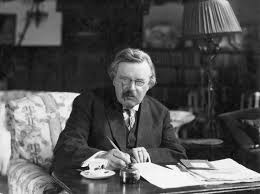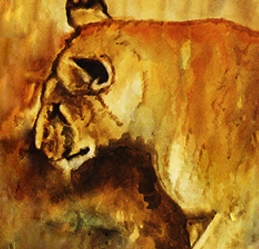Sicut in Principio
A Pentecostal breath—
The wind that baffles Death—
Moves; and from sterile sand
The sea brings forth the Land,
Out of whose wounded side
All life is satisfied.
To the Wheatfield
Give us this day our daily bread.
“O wheat,” the wind, in passing, said,
“’Tis you that answer everywhere
This call of Life’s incessant prayer;
Bow, then, in reverence your head,
For ’tis the Master’s gift you bear.”
Christ and the Winds
From Bethlehem to Calvary,
By night and day, by land and sea,
His closest followers were we.
We soothed Him on His mother’s breast;
We shared with John the place of rest;
With Magdalen His feet we pressed.
We saw His twilight agony;
To us He breathed His latest sigh;
With us He sought again the sky.
And now of all to whom His tone,
His face and gesture once were known,
We, wanderers, remain alone.
Waves
We sighed of old till underneath His feet
Our pulses beat,
Again to sigh in restlessness until
He saith, “Be still.”
And with us is the ever-moving wind,
And all mankind—
A triple chorus—each upheaving breast,
A sigh for rest.
A Wind-Call
Dust thou art, and unto dust,
Playfellow, return thou must;
Lingering death it is to stay
In the prison-house of clay—
Bricks of Egypt, year by year,
Walling up a sepulchre.
Better far the soul to free
From its cold captivity,
And with us, thy comrades, go
Wheresoe’er we list to blow.
Come, for soon again to dust,
Playfellow, return thou must.
For a recitation, click the play button:
[soundcloud url=”http://api.soundcloud.com/tracks/110752937″ params=”” width=” 100%” height=”166″ iframe=”true” /]“Sicut in Principio”: Later Poems, p. 63; Poetry, p. 115. 1910. Sicut in Principio: Latin, as in the beginning. Pentecost is the day on which Christians celebrate the coming of the Holy Spirt on the first disciples, as recounted in Acts 2, especially verses 1-2. The penultimate line may allude to John 19:33-34.
“To the Wheatfield”: Later Poems, p. 59; Poetry, p. 103. March 1906. The first line is from the Our Father, the Lord’s Prayer, Luke 11:3. The Master is the Lord Jesus.
“Christ and the Winds”: Later Poems, p. 26; Poetry, p. 194. 1910. Bethlehem (Hebrew, House of Bread) is where the Lord Jesus was born (Luke 2, especially verses 4-7); Calvary (Latin, Skull) is where He died (Luke 23:33). John is the apostle St. John the Evangelist, who leaned close to Jesus at the Last Supper (John 13:23-26). Magdalen is St. Mary Magadalene; the allusion is to the Gospel story of the sinful woman washing the Lord’s feet with her hair, Luke 7:36-50; traditionally, the woman has often been identified as the Saint, though the identification is not much more than conjecture. Twilight agony is a reference to the Lord’s Agony in the Garden; see Luke 22:39-46, especially verses 43-44. Latest sigh refers to the Lord’s dying breath, Luke 22:43-46, particularly the last verse. He sought again the sky: a reference to the Ascension of the Lord, Acts 1:6-11, particularly verse 9.
“Waves”: Father Tabb, p. 193; Poetry, p. 117. March 1909. He is the Lord Jesus. The quoted words are from the Gospel story of the Lord calming the storm at sea, Mark 4:35-41.
“A Wind-Call”: Later Poems, p. 69; Poetry, p. 52. March 1904. List means to desire, like, or wish. The first two lines echo Genesis 3:19, a line used in the Ash Wednesday service. The Israelites were oppressed in Egypt and forced to construct buildings, making the bricks themselves; see Exodus 5, especially verses 6-18. The fourth line in the second stanza may allude to John 3:8.


